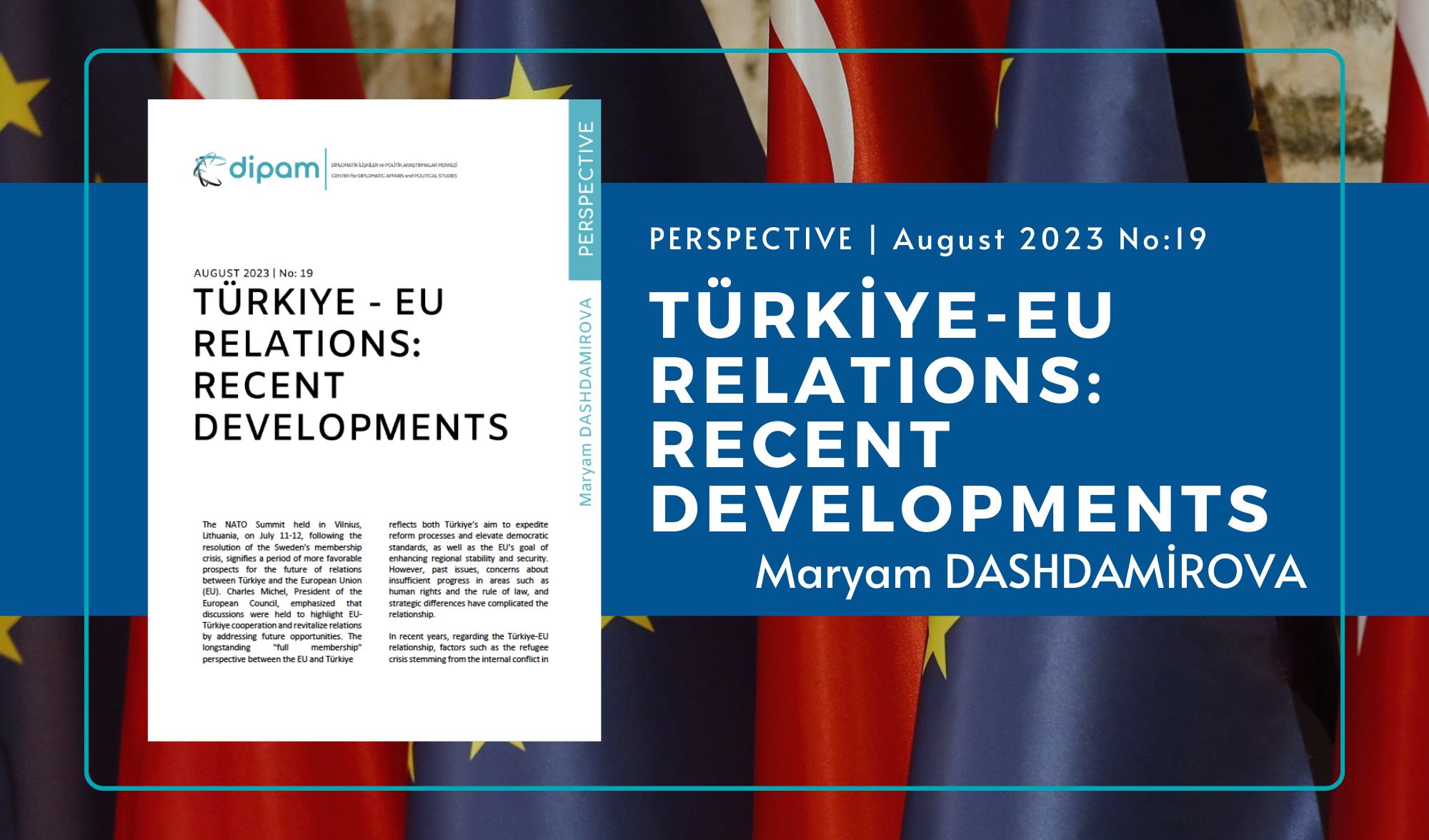The NATO Summit held in Vilnius, Lithuania, on July 11-12, following the resolution of the Sweden’s membership crisis, signifies a period of more favorable prospects for the future of relations between Türkiye and the European Union (EU). Charles Michel, President of the European Council, emphasized that discussions were held to highlight EU-Türkiye cooperation and revitalize relations by addressing future opportunities. The longstanding “full membership” perspective between the EU and Türkiye reflects both Türkiye’s aim to expedite reform processes and elevate democratic standards, as well as the EU’s goal of enhancing regional stability and security. However, past issues, concerns about insufficient progress in areas such as human rights and the rule of law, and strategic differences have complicated the relationship.
In recent years, regarding the Türkiye-EU relationship, factors such as the refugee crisis stemming from the internal conflict in Syria and security concerns, have emphasized the need to increase cooperation and dialogue. The EU’s policies to strengthen cooperation with Türkiye include areas such as the economy, updating the customs union, and counterterrorism efforts. Nonetheless, there are certain obstacles to improve relations. Particularly, disagreements on issues like the Cyprus problem, the sharing of energy resources, human rights, and freedom of expression have created tensions. Furthermore, the political dynamics in Türkiye and internal issues within the EU also influence the course of relations. Türkiye and the EU find themselves in a period of shaping their relations at a time when the EU’s foreign policy is taking shape, and Türkiye’s regional role is gaining significance. In particular, international developments like the Russia-Ukraine war have increased the EU’s security and defense needs, positioning Türkiye as an important player for the EU. In conclusion, today’s Türkiye-EU relations are influenced by both historical dynamics and the current international environment. The political, economic, strategic, and security dimensions of Türkiye-EU relations should be comprehensively addressed.
Statements made by the EU High Representative Joseph Borrell regarding Türkiye-EU relations are important in terms of presenting the priorities of the parties in the near future and also outlining their vision for the future of the relationship. Borrell’s points underscore the potential and complexity of Türkiye-EU relations. Borrell states that building a stronger relationship between Türkiye and the EU would be beneficial for both sides. This reflects both Türkiye’s desire to pursue EU membership and the EU’s aim to achieve regional stability and security. Borrell mentions that issues such as updating the Customs Union and visa liberalization are on the table, emphasizing that these topics encompass not only the expectations of the EU but also those of Türkiye. This indicates the need for both sides to act taking into account their mutual interests. Türkiye’s desire to update the Customs Union agreement highlights the importance of economic cooperation, while the issue of visa liberalization represents a dimension of human mobility and convergence. The disputes in the Eastern Mediterranean, which Borrell has mentioned, encompass strategic issues such as the allocation of energy resources and the determination of maritime boundaries. Therefore, the resolution of these disputes between the parties is a critical step for regional stability and cooperation.
…




